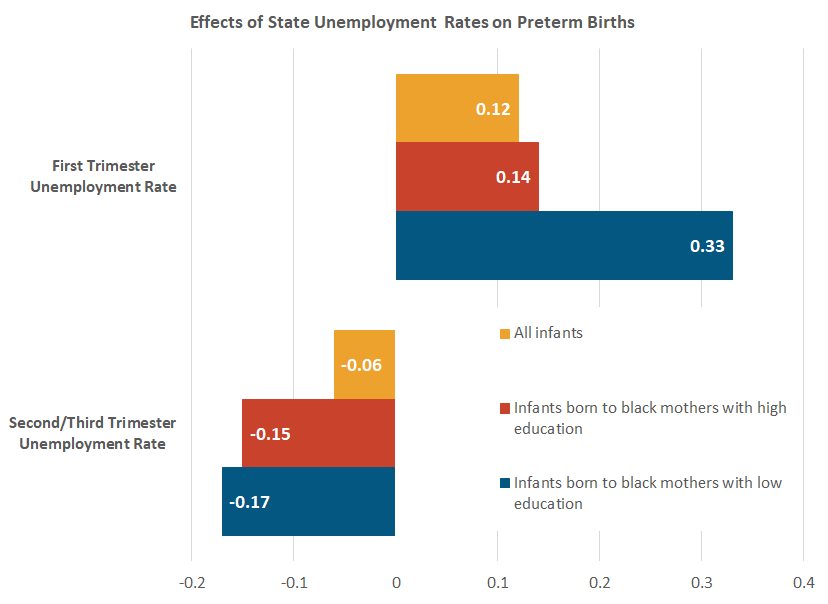Abstract
Using birth certificate data for nearly all registered US births from 1976 to 2016 and monthly data on state unemployment rates, we reexamined the link between macroeconomic variation and birth outcomes. We hypothesized that economic downturns reduce exposure to work-related stressors and pollution while increasing exposure to socioeconomic stressors like job loss. Because of preexisting inequalities in health and other resources, we expected that less-educated mothers and black mothers would be more exposed to macroeconomic variation. Using fixed-effect regression models, we found that a 1-percentage-point increase in state unemployment during the first trimester of pregnancy increased the probability of preterm birth by 0.1 percentage points, while increases in the state unemployment rate during the second/third trimester reduced the probability of preterm birth by 0.06 percentage points. During the period encompassing the Great Recession, the magnitude of these associations doubled in size. We found substantial variation in the impact of economic conditions across different groups, with highly educated white women least affected and less-educated black women most affected. The results highlight the increased relevance of economic conditions for birth outcomes and population health as well as continuing, large inequities in the exposure and impact of macroeconomic fluctuations on birth outcomes.
Our summary
Are recessions good or bad for babies’ health? In a comprehensive analysis using data for virtually all children born between 1976 and 2016, Noelke et al. find that economic downturns are hazardous if mothers are exposed to their adverse effects during the first trimester of pregnancy. During the second and third trimester, however, protective effects of downturns dominate.





